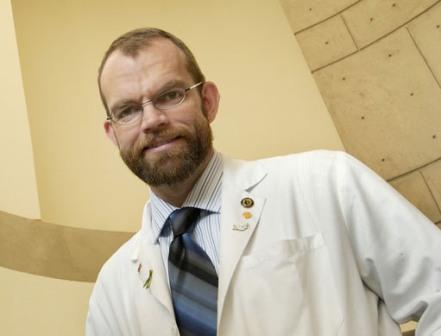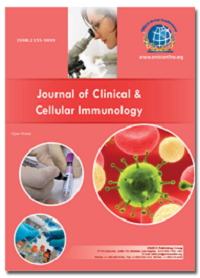Scientific and Clinical Advisory Council
SafeMinds Scientific & Clinical Advisory Council is comprised of clinicians, health professionals, and scientists from a variety of disciplines, including, among others, specialists and experts in autism, environment, toxicology, pediatrics, neuroscience, pharmacology, and psychology.
José G. Dórea, Ph.D.
Professor of Nutritional Sciences, University of Brasília
A graduate of the University of Pernambuco with advanced degrees from the University of Massachusetts (MSc and PhD), Dr. Dorea has worked at Iowa State University (USA), University of Hawaii (USA), and University of Campinas (Brazil). He has authored numerous book chapters, and has published on infant nutrition and the environmental impact of toxic (natural and man made) substances on the growth and development of children. Dr. Dorea is on the editorial board of peer-reviewed scientific journals, and has authored and co-authored more than 180 papers in journals of public health, medical and environmental sciences, toxicology, and pharmacology.
Cindy Schneider, MD
Medical Director, Center for Autism Research and Education
Dr. Schneider is the Medical Director of CARE, the Center for Autism Research and Education. Her integrative medical practice is exclusively dedicated to individuals with autism and related neurological and immune disorders. Dr. Schneider’s areas of special interest include treatment of the immune, gastrointestinal, and metabolic aspects of autism and the identification of environmental toxins contributing to the autism epidemic. She has designed and implemented multiple research studies, and collaborated with researchers worldwide. Dr. Schneider’s priorities in both her medical practice and her research include the identification of the causes of autism, the formulation of effective treatment protocols, and the prevention of autism in future generations.
Dr. Schneider has served as a member of the Defeat Autism Now! think tank since 1997, and serves on the Clinician Advisory Committee at the Autism Research Institute. She was the founding president and medical director of two nonprofit organizations for autism research, and is a medical advisor for SafeMinds. Dr. Schneider has published extensively in the areas of genetic vulnerability to environmental toxins, and innovative treatments for the gastrointestinal and immune complications of autism.
As the mother of two children with autism and a leading authority in the field, Dr. Schneider closely tracks developments in autism research, and provides both a medical and personal assessment of current and promising treatment options.
Robert Sears, M.D.
Robert W. Sears, MD, FAAP, is a board-certified pediatrician in a full-time private practice in Dana Point, Calif. He received his medical degree from Georgetown University, and did his pediatric residency training at Childrens Hospital Los Angeles. “Dr. Bob,” as he likes to be called by his little patients, provides a unique blend of mainstream and integrative medical care. He is a co-author in the Sears Parenting Library, including The Baby Book and The Portable Pediatrician, and is the author of The Vaccine Book, The Autism Book, and HappyBaby: The Organic Guide to Baby’s First 24 Months. Dr. Bob has appeared on Dr. Oz, The Doctors, CNN, CBS Early Show, Fox Morning News, and Dr. Phil discussg parenting advice and pediatric health issues. He is a frequent speaker at parenting conferences, and serves on the medical advisory board for various organizations, including Talk About Curing Autism, Autism Care and Treatment Today, HappyBaby Organic Baby Food, and Kaplan University Department of Health Sciences. Dr. Bob is a contributor to AskDrSears.com, and regularly answers questions on his Mothering.com Ask the Experts forum.

Canada Announces Autism Prevalence Study Results – On Time and Going Up
While America’s attention has been focused on its southern border, our northern neighbors have announced the results of a Canadian autism prevalence study. The study received little attention in the U.S., despite its relevance to our situation here. The study found the prevalence of an autism spectrum disorder among Canadian children to be 1 in 66, or 15.2 per 1000 children. The study results were announced by the Public Health Agency of Canada and survey data was collected in 2015 and covered 40% of the Canadian school-aged population ages 5-17. Seven of the 13 provinces/territories in Canada participated in the survey.

Autism’s Co-Occurring Conditions: Time to Act
The evidence is piling up on the severe burden of health problems that accompany autism spectrum disorder (ASD). These problems are often unrecognized and not addressed. According to a new study from scientists with the U.S. Centers for Disease Control & Prevention (CDC), “the high prevalence and diversity of co-occurring conditions/symptoms in ASD suggest the need for a comprehensive system of care for these children.”

Cannabis for Autism: Biological Clue to Effectiveness
Many parents are reporting success using cannabis for their child with autism. A new study by researchers at Stanford University gives a clue to why cannabis might be effective for the person with autism spectrum disorder (ASD). The study, “Plasma anandamide concentrations are lower in children with autism spectrum disorder,” found reduced amounts of a neuromodulator, anandamide (N-arachidonoylethanolamine or AEA), in the blood of 60 children with ASD compared to 56 neurotypical control children. The children were ages 3-12 years. The ASD group had a confirmed autism diagnosis. The typical controls had no history of neurodevelopmental or mental health problems.

Acetaminophen as a cause of the autism pandemic? It makes absolutely no sense … at first.
My research looks at what causes harmful inflammation in people in Western societies. The triggers of inflammation are recent developments in human history, appearing after the agricultural revolution only 10,000 years ago. Most did not appear until just a few decades ago, as we entered the post-industrial age. 1 My favorite example is the loss of biodiversity from the human body. Humans have always been bathed inside and out with bacteria, viruses, fungi, worms, and other organisms, but in recent decades our bodies’ ecosystems have become much less diverse, to our detriment.

Duke University Study Finds Helminths are Beneficial to the Gut Biome Promoting More Good Bacteria and Less Bad
Acting on this discovery could have a profound affect on human health. The idea that from the ecosystem of the human body is leading to inflammation and disease is gaining widespread acceptance. This loss of diversity, known as “biome depletion”, is caused by a variety of factors in modern society and has an effect on every aspect of our body’s development and function, including our brain’s development and function. Most attention among scientists and the media alike has focused on the microbiome, the microorganisms or germs in our biome. However, a substantial body of experimental evidence points toward the presence or absence of larger organisms, helminths or worms, as having a generally more global effect on the body’s function, including alteration in the microbiome.

Study Finds Autism-Mercury Link Through Elevated Antibodies to Critical Brain Proteins
A study published in the current issue of the Journal of Clinical & Cellular Immunology found indicators of autoimmunity to critical brain proteins associated with mercury exposure in children with autism. The authors, Gehan Ahmed Mostafa and Laila Yousef AL-Ayadhi at the Department of Pediatrics, Faculty of Medicine, Ain Shams University, in Cairo, Egypt and the Autism Research and Treatment Center in the Department of Physiology, Faculty of Medicine, at King Saud University in Riyadh, Saudi Arabia, respectively, hypothesize that mercury might play a causative role in some cases of autism through increased levels of antibodies to myelin basic protein, or MBP.


